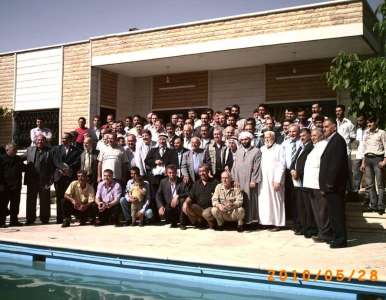The family gains its importance as a fundamental pillar of one of the essential social systems upon which society heavily relies for the care and proper upbringing of its members. When the family unit is healthy, cohesive, free from psychological disorders, and individual corrupt tendencies, it achieves a complete positive impact that reflects on society. Such a society, strengthened by morally upright and sound human resources provided by families, experiences security, stability, and moves toward proper development.
Thus, the family is the nucleus of society—its first cell—sharing in its happiness and sorrow. Allah Almighty surrounded it with love, compassion, and harmonious companionship, as He says:
“And among His signs is that He created for you spouses from among yourselves so that you may find tranquility in them, and He placed between you affection and mercy. Indeed in that are signs for a people who reflect.” (Qur’an 30:21)
Maintaining a righteous family structure is both a duty and a trust upon the shoulders of fathers and mothers. It is an immense responsibility for the roots of the family (the parents) to build values, conduct, and proper interactions in the branches of the family (the children). Parents exert every effort, material and spiritual, to educate and raise their children. The results of this upbringing—whether good or bad—reflect directly on society: when the family is righteous, society flourishes; when the family falters, the foundations of society are undermined. Family deviation is among the gravest causes of children’s moral decline, as a child acquires absolute values without questioning from their parents during the formative years, which shapes their identity and instills elements of their character through parental behavior and ethics.
We must emphasize to family heads that responsibility toward the family is not limited to providing sustenance, clothing, and shelter. It also includes educating children with noble values, treating them equally in both material and moral aspects without favoritism between sons and daughters, avoiding scolding, threats, overindulgence, or neglect. A balance must be maintained between intellect and emotion, offering guidance, gentle discipline, patience, and moral counseling to create a healthy environment where psychological disorders cannot thrive.
In summary, the family has a comprehensive mission, including:
- Education and upbringing
- Protection and safety
- Instilling love and affection among children
- Proper guidance and counseling
Emphasizing the family’s role in nurturing children is essential for the continuation of sound human life. It is a cause of societal happiness, prestige, and development. This emphasis and care are necessary in every era, especially in the face of questionable ideologies and misguided efforts that aim to weaken the family’s cohesion and bond.
Imad al-Din Joudat Dalati
16 May 2010


